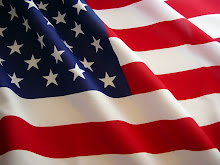United 93
World Trade Center
Of all the media surrounding the September 11th terrorist attacks, the two major Hollywood films, United 93 and World Trade Center, are the most intriguing cases to analyze. First, one must understand the concept of making a profitable film about such a disastrous event in the country’s history. As the United States continued to mourn several years later, the movies were released and grossed $76 million (United 93) and $162 million (World Trade Center). Additionally, the question of representation becomes a problem, as Hollywood films tend to represent high-emotion events with profitability at the center of its purpose, leading to objectivity problems and the continued question of what it means to be patriotic or a proper American.
In United 93, director Paul Greengrass follows the events of September 11th from the periphery at first and then from the infamous flight deck of United 93, which was destined to crash into the Capitol Building before being overtaken by its heroic passengers. In World Trade Center, big-time Hollywood director Oliver Stone, who directed movies such as Alexander, Wall Street, and Natural Born Killers, directs in a cast led by actor Nicholas Cage with Maggie Gyllenhaal and Maria Bello in supporting roles. The story follows two Port Authority officers who are caught in the wreckage of the south tower of the World Trade Center and the effect it has on their families.
The differences between these two movies, despite the fact that they cover the same day in history is clearly manifested throughout the film. In United 93, Greengrass uses completely unknown actors, even using actual employees who experienced the crash when they were on the job. In World Trade Center, Stone uses popular Hollywood actors that cause the movie to be more disjointed from the emotion of the event. By using recognizable Hollywood actors, Stone’s portrayal utilizes a more profitable Hollywood approach. In addition, World Trade Center is full of hegemonic and patriotic lines that appeal to the exceptionalist point of view and the us vs. them binary opposition created in light of the September 11th attacks. In one scene where both Port Authority officers are found, Marine character Dave Karnes, described in many reviews as a “robotic soldier of Christ”, claims "Don't worry, I won't leave you! I'm a marine!" This clear allusion to the patriotism and courage of the armed forces is a clear sign of Americanism following the attacks, and it is these exact moments and images that contributed to the popularity of the film.
There are no signs of what Edward Said referred to as Orientalism in either film, other than the behavior of the hijackers in United 93, which shows clear signs of extremist Islam, but Greengrass tends to use this portrayal of Muslim terrorists in a tasteful fashion. Stone, on the other hand, chooses not to use any images of terrorists or even imagery of the buildings falling. His character, Karnes, however, makes reference to how he will make sure that those responsible for the attacks will “suffer for what they did”. Karnes reinforces the us vs. them binary opposition, alluding to the fact that those responsible must hate Americans for their freedom. This appeal to patriotic Americans tend to also separate who are or are not considered Americans, similar to many other pro-American entertainment in the post-9/11 era. This indirect Orientalism has the same dichotomous effect that outright Orientalism had before the 9/11 attacks — reinforcing hegemonic patriotism that forces those who do not fit the ideal American framework out of the picture.
In comparing the two movies, it’s clear that Greengrass’ United 93 is made in a thoroughly objective framework, honoring the victims of the flight without sensationalizing the story for a Hollywood audience. With Stone, however, World Trade Center is a mostly sensationalized Hollywood film that clearly alludes to binary oppositions and ideas of Americanism that would appeal to many citizens under patriotic hegemony in the post-9/11 world.
Subscribe to:
Post Comments (Atom)

No comments:
Post a Comment